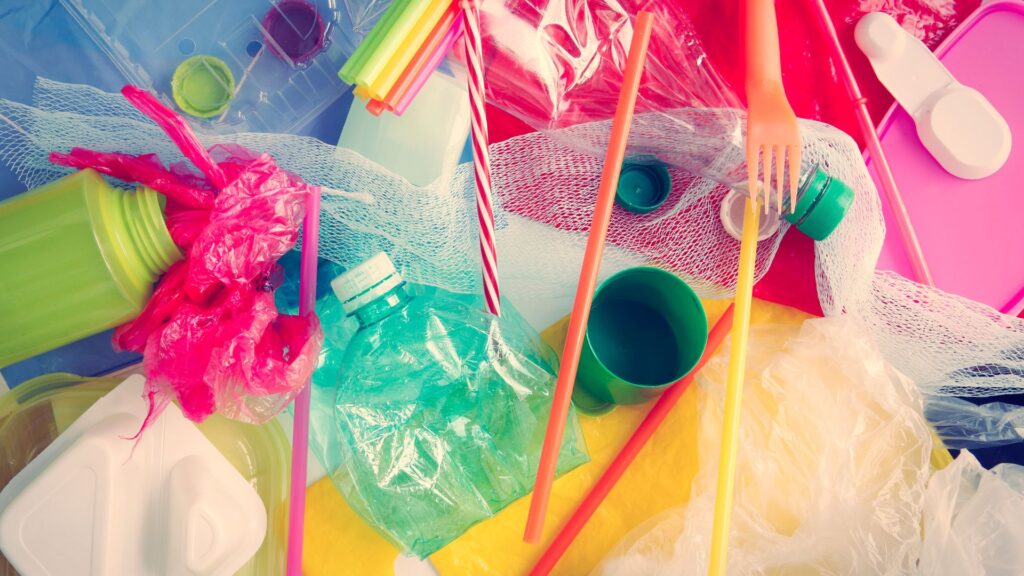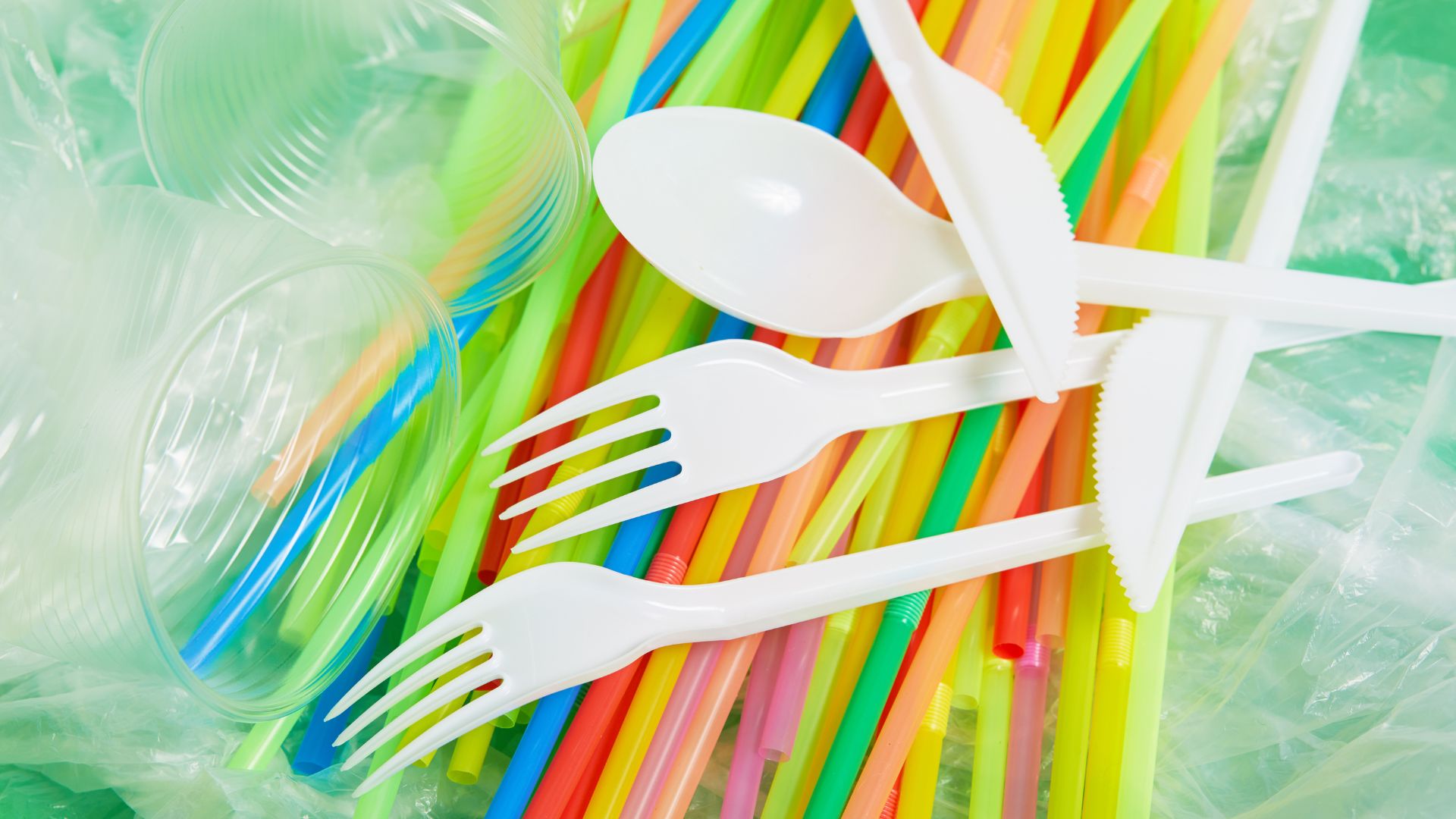Plastic waste is a huge environmental problem. We’ve used more plastic in the last decade than we did during the last century. When done with straws or plastic packaging, most of the plastic companies use is thrown away after one use.
By 2050, plastic in the ocean will weigh more than its fish. And today, microplastics are found everywhere, even in Antarctica.
All of us have a responsibility to use less plastic. But as consumers, we can also use our purchasing power to encourage companies to reduce their plastic waste. In this article, learn how companies are reducing plastic waste and how you can be an eco-consumer.
Banning Plastic Straws
Probably the most noticeable to consumers, banning plastic straws is one-way companies are reducing plastic waste.
The 500 million non-recyclable straws Americans use every day can’t go in recycling bags. And due to their lightweight nature, straws commonly find their way into the ocean.
Companies banning straws include Starbucks, American Airlines and Disney Resorts.
Switching to Recycled Plastics in Packaging
Experts agree that we must achieve a circular economy to meet sustainability goals. In a circular economy, consumer goods past their usable life are recycled rather than placed in eco-friendly garbage bags. Manufacturers would then opt to use recycled materials over virgin material that depletes natural resources.
But using recycled plastic in manufacturing is more costly than using virgin plastic. Additionally, Americans only recycle less than 10 percent of our plastic. Due to its higher cost and lower availability, most companies pass over recycled plastics and manufacture their products using virgin plastic.
Some companies have embraced the tenets of the circular economy by incorporating a large percentage of recycled plastic into their existing packaging. Adidas, Dr. Scholl’s Shoes and Patagonia are a few of the more well-known companies using recycled plastic in their products.
Making the Switch to Sustainable Packaging
Some companies are adopting more sustainable alternatives to plastic packaging. For example, IKEA is adopting “Mushroom Packaging.” The biodegradable packaging will compost in customers’ gardens in about a month.
Changing Their Products to Reduce Plastic Waste
Plastic remains the best type of packaging for any product that contains water. Some companies are removing water from their products so they can use more sustainable packaging, such as cardboard.
Ethique Beauty markets “plastic-free beauty” and sells shampoo, conditioner and facial cleansers in the form of bars. Several brands of laundry detergent sheets have recently come to the market. These zero-waste laundry detergents avoid plastic bottles.

Beware of Greenwashing
Recent surveys indicate that consumers care about the environment, so much so that 42 percent of those surveyed said they rather support green companies even if they have to spend more.
On the surface, that consumerist zeal for the environment seems like it would incentivize companies to be more green. Unfortunately, sometimes they commit greenwashing instead. Greenwashing is nothing more than a PR campaign designed to make consumers believe the company is environmentally responsible. Companies that greenwash make vague eco-friendly claims while failing to invest in initiatives that actually make a positive environmental impact.
Common Greenwashing Techniques
They use eco-buzzwords like sustainable and eco-friendly. The use of these terms isn’t regulated. Look for concrete ways the company is sustainable.
Creating Vague Sustainability Policies
Corporate sustainability policies should have clear goals and benchmarks. Sustainability policies should also be ambitious enough to make a meaningful environmental impact.
Nestle released a sustainability policy to adopt recyclable packaging. But the statement was really a commitment to continue using single-use plastic without encouraging recycling. Greenpeace called out Nestle for greenwashing.
Making Green Products a Fraction of Their Model
Sometimes, companies will create a line of environmentally friendly items. Yet, their eco-friendly line remains a tiny portion of their overall business model.
Fast fashion uses a significant amount of natural resources. And the clothing the fashion industry produces is poorly made and quickly discarded. One of fast fashion’s largest culprits, H&M, created a line of green clothing without addressing the company’s much larger line of environmentally damaging products.
Creating a Green Front While Engaging in Damaging Practices
Ikea has made some impactful sustainability changes. They’ll purchase and recycle broken Ikea furniture from customers. And they’ve created a clear People & Planet Positive initiative to become climate positive by 2030. However, the furniture retail giant was recently caught sourcing logs from protected Russian forests.
 How to Support Companies Reducing Plastic Waste
How to Support Companies Reducing Plastic Waste
You can always research companies yourself. But if you find yourself pressed for time, search for companies that earned third-party certifications for sustainability.
While there isn’t a certification that addresses only corporate plastic waste, many certifications incorporate waste requirements designed to reduce plastic waste.
B Corps
B Corp certification tackles social and environmental issues surrounding being a responsible business. And while every B Corp approaches sustainability a little differently, they all make impactful choices. Content on the B Corp provides transparency and a way for you to verify how companies handle the waste.
Zero Waste
While not technically a certification program, Zero Waste provides companies with waste audits, assessments and benchmarking services. They also highlight companies’ achievements in their efforts to achieve zero waste.
Apart from government intervention, the only way we can tackle our plastic problem is by supporting companies that make impactful efforts to reduce plastic waste while calling out those that engage in greenwashing. Do your part by reducing your own plastic and insisting the companies you buy from doing as well.




